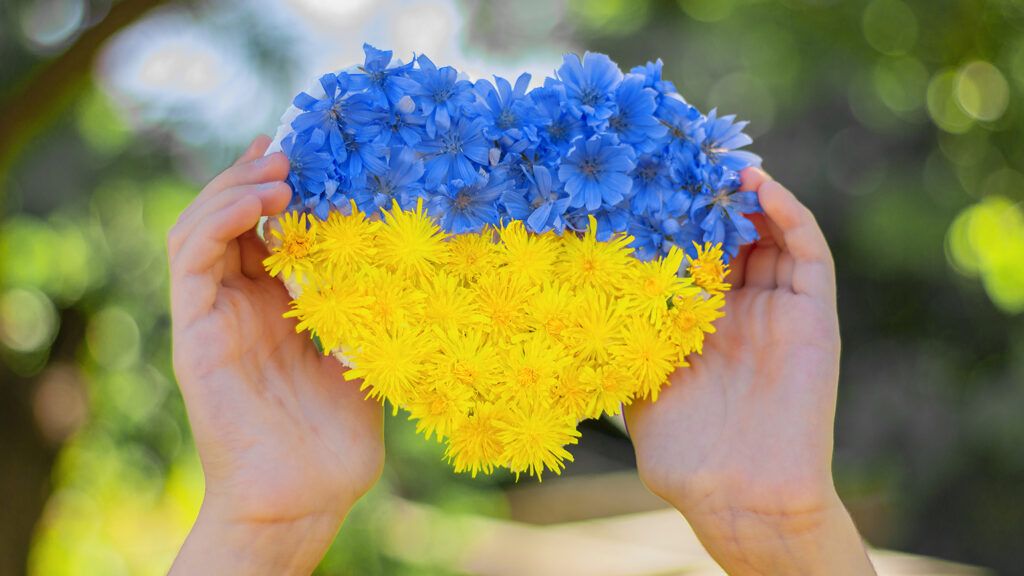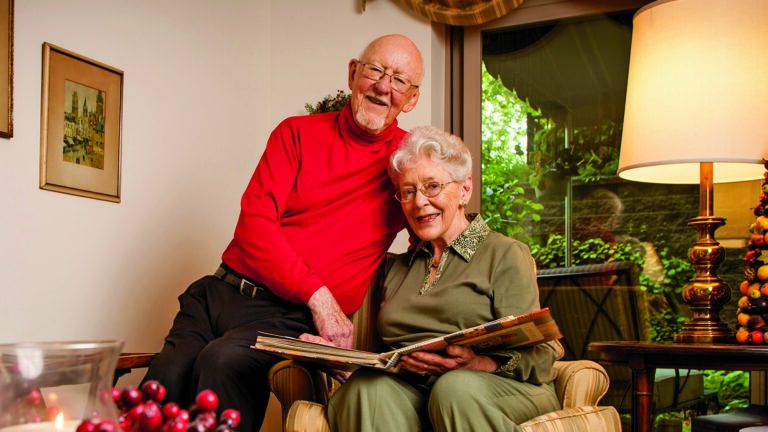As the Russian invasion of Ukraine continues, it can be difficult to find a sense of hope amongst such heartbreak. More than 2.5 million Ukrainians have fled their country, most of whom are women and children who have been forced to leave behind husbands and fathers who were banned from leaving—males aged 18 to 60 have been ordered to remain. In the midst of uncertainty and loss, there have been moments of hope and resilience in Ukraine and around the world, as strangers come together to help those in need. These stories are putting the generosity of the human spirit in full display.
Strollers at the Station
Photojournalist Francesco Malavolta was at a train station in Poland, hoping to document the arrival of refugees in the station when he noticed something. Empty strollers, some of which contained blankets and clothes, were lined up on a platform at the Przemyśl station, which sits at the border crossing between Ukraine and Przemyśl, Poland. The strollers were left behind by Polish parents for Ukrainian mothers fleeing with babies. “I thought of them both, about the solidarity of those who brought the strollers and the dramatic stories of mothers fleeing the war,” Malavolta told TODAY. He snapped a photo and uploaded it to social media. It wasn’t long before the powerful image went viral. “There is a strong feeling of solidarity,” he said. “There should always be and for everyone, regardless of the starting points of the most fragile.”
Sheltering with Strangers
Thousands of German residents have offered housing, food, clothes and other necessities to Ukrainians who have fled their home country after the Russian military attacks began. With posters in hand, indicating the type of support they can provide, Germans stand at Berlin’s central railway station, waiting to greet Ukrainians.
April, a Ukraine native who has been living in Germany for a year, is one of the many volunteers offering emotional and material support. “The least I can do is help people who were able to escape,” she told NPR. “It’s very important for me that my fellow Ukrainians feel welcome here, especially the children.” Other volunteers are offering transportation, providing emergency accommodation, gifting mobile SIM cards and matching refugees with people who are offering rooms in their homes—a powerful example of the kindness of strangers.
A Web of Help
In 2019, Mercer Island High School student Avi Schiffmann developed ncov2019.live, one of the first and largest websites used to track the spread of the coronavirus around the world. This year, on February 27, Schiffman, now a Harvard student, had another idea. He decided to build another site that would help Ukrainian refugees find hosts in neighboring countries throughout Europe and all over the world. With the help of his classmate, Marco Burstein, an 18-year-old computer coder, Schiffman launched Ukraine Take Shelter, an independent platform in 12 languages that allows Ukrainians to find hosts offering spare rooms, childcare support, disability support and legal assistance.
“It’s really cool to develop something like that all the way from home and actually have it help people across the entire world, in a country I didn’t really ever think about a few months ago,” Schiffman told KIRO Newsradio. The website currently has over 4,000 listings in countries like Germany, Poland, Iceland and Australia. Within the first week of its launch, dozens of refugees were able to find shelter. Burstein, who feels grateful to have his family around and to live in a safe environment, told The Washington Post, “We felt it was our turn to give back.”
A Noble Lesson
When war broke out in Ukraine and residents began to flee the country, Oleksiya Kayokhtin, a history teacher in the southeastern city of Mariupol, decided to stay. The 33-year-old teacher who has taught in Ukraine for the last decade, refused to leave helpless children behind. “I stay in town no matter what,” Kayokhtin told ABC News. “I said I won’t leave my children even if I’m killed.” He helped evacuate an entire orphanage to Zaporizhia shortly after Putin declared war on Ukraine and took children, seniors and disabled people to a bomb shelter. He provides food and warm clothes for everyone in the bunker, which is currently sheltering 400 kids.
While stepping out to find supplies, Kayokhtin put himself in danger and came in contact with military forces on the street. “We were driving past the so-called DPR (Donetsk People’s Republic), bringing bread, and the troops started shooting for some reason, although there’s a sign of humanitarian aid on our car,” Kayokhtin said. “Somehow God helped us.” With the help of two other people, a medical worker and a driver, he plans to continue helping children for as long as he needs to, with hopes that one day he’ll continue teaching.





